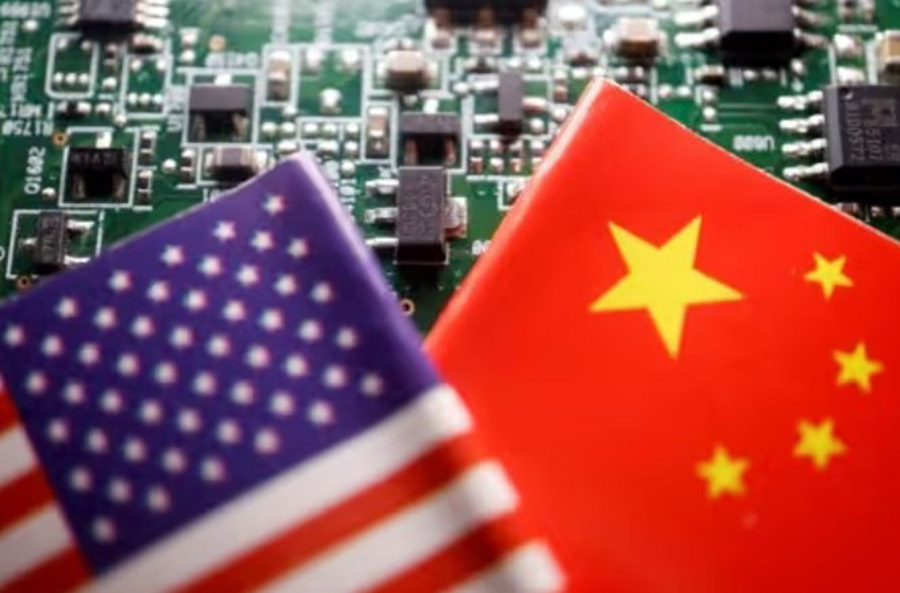By Andrea Shalal, David Lawder, and Karen Freifeld
WASHINGTON/NEW YORK- The United States on Friday issued draft rules for banning or requiring notification of certain investments in artificial intelligence and other technology sectors in China that could threaten US national security.
The US Treasury Department published the proposed rules and a raft of exceptions after an initial comment period following an executive order signed by President Joe Biden last August. The rules put the onus on US individuals and companies to determine which transactions will be restricted or banned.
Biden’s executive order, which directed regulation of certain US investments in semiconductors and microelectronics, quantum computing and artificial intelligence, is part of a broader push to prevent US know-how from helping the Chinese to develop sophisticated technology and dominate global markets.
The US is on track to implement regulations by the end of the year as anticipated. Public comments on the proposed rules will be accepted until Aug. 4.
“This proposed rule advances our national security by preventing the many benefits certain US investments provide – beyond just capital – from supporting the development of sensitive technologies in countries that may use them to threaten our national security,” said Treasury Assistant Secretary for Investment Security Paul Rosen.
Treasury said the new rules were intended to implement “a narrow and targeted national security program” focused on certain outbound investments in countries of concern.
Treasury had mapped out the contours of the proposed rules in August. The Treasury Department on Friday included additional exceptions, such as for transactions deemed to be in the US national interest.
The proposed rules would ban transactions in AI for certain end uses, and involving systems trained in using a specified quantity of computing power, but would also require notification of transactions related to the development of AI systems or semiconductors not otherwise prohibited.
Other exceptions would apply to publicly traded securities, such as index funds or mutual funds; certain limited partnership investments; buyouts of country-of-concern ownership; transactions between a US parent company and a majority-controlled subsidiary; binding commitments that pre-date the order; and certain syndicated debt financings.
Certain third-country transactions determined to be addressing national security concerns, or in which the third country adequately addressed the national security concerns, could also be exempted, Treasury said.
The order focuses initially on China, Macau and Hong Kong, but US officials have said it could be widened later.
Former Treasury official Laura Black, a lawyer at Akin Gump in Washington, said Treasury was attempting to define the scope of the rule as narrowly as possible, but it would require increased vigilance by companies seeking to invest in China.




